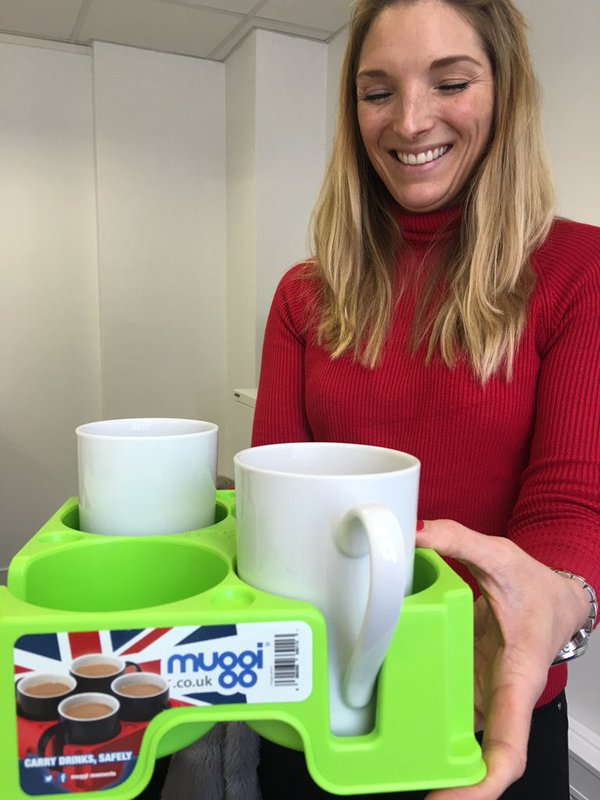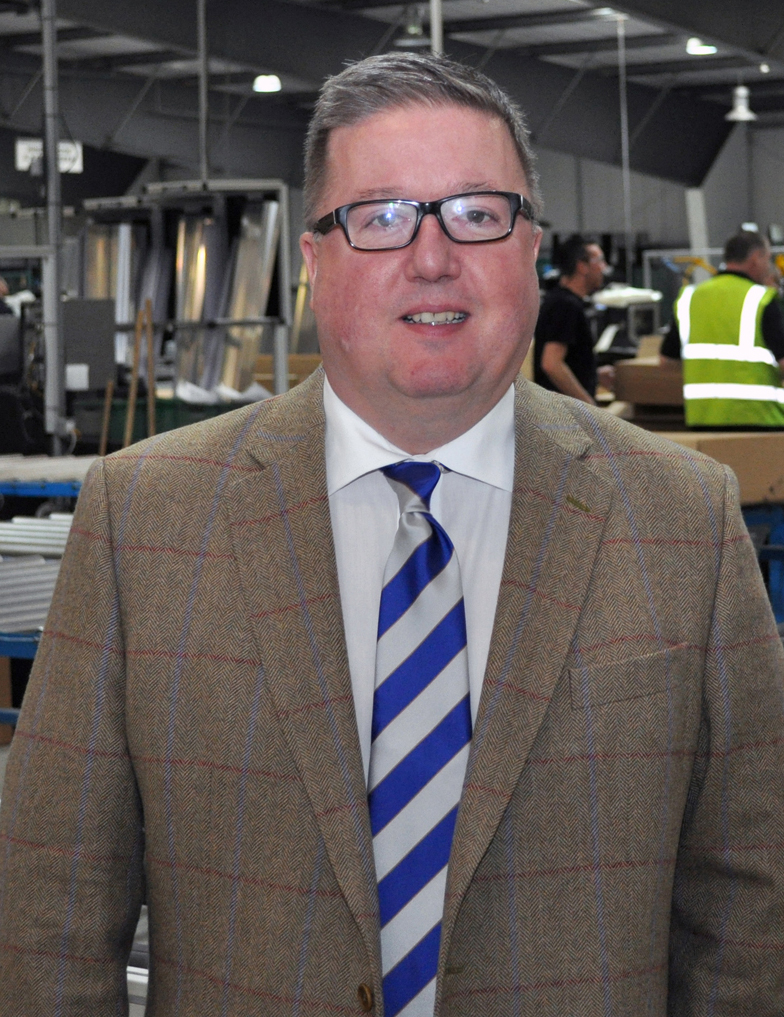Muggi is a small Kent-based company that makes plastic drinks trays for use in places as diverse as ocean-going yachts and old people’s homes. "I’m patriotic," says David Trotter, Muggi’s founder. "I want to make things in Britain and to export."
These sentiments are behind Muggi’s membership of Made in Britain, a business organisation promoting UK production. The group encourages its 900 members to share ideas in such areas as marketing, and spans sectors from drilling equipment to artificial grass.

“We are a diverse and vibrant sector,” says John Pearce, Made in Britain’s chief executive. “I feel that now is a fantastic time to tell a cohesive story about British manufacturing.”
The organisation is best known for a special marque – featuring a motif based on Britain’s Union Jack national flag – which members are encouraged to use prominently in marketing literature and packaging.
Pearce wants
Made in Britain – which receives no government support and relies on corporate
subscriptions – to increase membership to 4,000 over the next few years. That
would make it only slightly smaller than the EEF
trade body for manufacturers which focuses on economic and regulatory issues.
“To give ourselves more of a voice, we need to expand to encompass a larger
section of the UK manufacturing community,” Pearce says.
Made in Britain and the EEF aren’t the only groups that extol the merits of UK production in order to encourage “made in Britain” thinking and so help boost sales of their members. Among the others – both smaller than Made in Britain – are Make It British, which focuses on textiles and fashion, and Best of Britannia, whose members are mainly makers of high-end consumer goods.
All these organisations believe a set of favourable trends will help their cause. Among them are an enduring belief among consumers both in Britain and abroad that British production equates with quality, and a move towards “re-shoring” – returning manufacturing jobs from overseas to the developed world – triggered by spiralling wages in China and other nations previously regarded as “low-cost”.
Pearce thinks a third factor is at work – Brexit. While some believe Britain’s departure from the European Union will knock manufacturing by plunging the economy into shock, Pearce says the move might unlock a sense of self-reliance, causing more companies to invest in home-grown production.
At Muggi, Trotter believes membership of Made in Britain brings several advantages. At a basic level, linking with other members is a useful way to generate sales leads, learn new ideas or simply make useful contacts. For instance, through the Made in Britain connections Trotter recently met an industrial designer with whom he has started discussions about a new product – a cycling accessory. In a similar way he has identified another company that could take over at least some of Muggi's production.
Being upfront about the merits of making things in Britain can, he says, cause companies to stand out from others. "When I attend trade shows and meet my customers face to face, many are delighted that we manufacture in the UK and not in China.”

David Osborne (pictured above) is managing director of Roman, a Made In Britain member based in Newton Aycliffe, County Durham, and which makes showers."The Made in Britain marque is now increasingly recognisable and creates differential for us and other members in the marketplace," says Osborne.
He thinks the individual members can do a lot to help each other. For instance Roman uses the Made in Britain website to identify suitable companies which could form part of its supply chain for goods and services,
Colin Robertson, managing director of Top Brass, a maker of furniture and furnishings from Hartlepool, says he hopes the network of contacts can help him to widen the company’s existing customer base from hotels and student accommodation to retailers and other groups selling to consumers.
Another Made in Britain member is the UK arm of Schoeller Allibert, a Dutch manufacturer which runs a factory in Cheshire making storage boxes for supermarkets (pictured below). Karen Jervis, the company’s UK marketing manager, says that by boosting the profile of UK manufacturing, Made in Britain has an indirect role in helping recruitment.
“A lot of young people think manufacturing in Britain has lost its way,” says Jervis. “If we can push the idea that UK manufacturing has a future, we can encourage more young people to consider the sector as a career.”
.JPG)
Making the schools connection
By Peter Marsh

Inside a large plant near Birmingham, Simon James is showing a group of local schoolchildren around. During a pause, the production manager at the family-owned Thomas Dudley explains the motivation. It's more than just positive PR, he says.
Thomas Dudley makes a range of plastic and metal items, from toilet cisterns to drainage covers and pictured above is the company's Martin Dudley. The company believes it has a great chance to increase sales on the back of what it sees as an overall uplift in demand for UK-made products. For this to happen, it will need a steady stream of new staff, some of whom could come from nearby schools.
"If we can do more to show our pride in making our products in the UK, it can help to increase our attraction to young people locally,” says James. Thomas Dudley’s recruitment effort plus its keenness to extol the merits of UK production also help to explain why it belongs to the promotional group Made in Britain.
Thomas Dudley employs roughly 350 people and last year had sales of more than £30m. Martin Dudley, managing director, elaborates on the schools links.
"As part of the effort to build ties with local communities, and also to increase our opportunities to recruit young people from the surrounding areas, we open up our plant to schools and colleges. Last year we had approximately 150 visitors from these establishments. We are working with more schools to build partnerships.”
As for the general cause of making things in Britain, Dudley reckons the trends are positive. "A decade ago, there was a migration [in production towards low cost economies such as India and China. We have seen a shift back towards UK manufacturing."
Behind this he says are responsiveness and flexibility. "We can manufacture components to incredibly short timescales and dispatch from stock within 24-hours. Services such as this are not available from overseas."
The networking effect of speaking to like-minded people is, he says, powerful. Here Thomas Dudley is doing its bit to encourage more UK manufacturers to link up. It recently hosted a Made in Britain workshop – one of a series - at which members shared new ideas in marketing, focusing on areas such as promotional campaigns and social media. "Working alongside other manufacturers has been extremely positive,” says Dudley.
